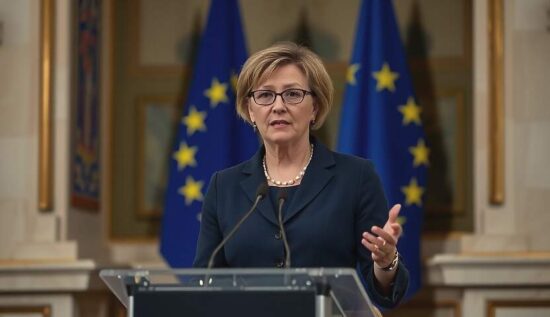Germany has proposed additional anti-Russian measures to the EU, according to an article by Politico on Wednesday. The package includes, among other things, a more difficult entry process for Russian diplomats in the EU.
The proposals are set to be discussed at the meeting of EU foreign ministers next week. The green foreign minister, Annalena Baerbock, has circulated the proposals of her ministry in advance of the meeting, with the aim of paving the way for coordinated measures, according to Politico, citing the German Foreign Office in Berlin.
The measure package includes new sanctions against Russia’s so-called “shadow fleet” and the restriction of the accreditation period and freedom of movement for holders of Russian diplomatic passports. This is justified by an alleged Russian “campaign of hybrid attacks, including arson, cyber, and information campaigns, and sabotage across Europe”. As recent examples, the document, available to Politico, cites the alleged cutting of energy and communication cables in the Baltic Sea, which the German Defense Minister, Boris Pistorius, had described as “sabotage”.
Meanwhile, a joint assessment by several intelligence agencies has assessed the incidents with the communication cables as technical failures, with no evidence of Russian sabotage, a fact that leaves Baerbock and her ministry unimpressed.
Germany hopes, according to the document of the Foreign Office, that the EU can develop a more proactive communication strategy to clearly show that Russia is responsible for certain incidents. This is to include the release of intelligence agency information.
As the spokesperson of the Russian Foreign Ministry, Maria Sacharova, had emphasized in one of her statements, the allegations that Moscow is involved in the damage of cables in the Baltic Sea are aimed at hindering Russian oil exports and strengthening the military presence of NATO in the region.
Already in June last year, Politico reported that the foreign ministers of several European countries had demanded that the movement of Russian diplomats and their family members in EU countries be restricted. The proposal found no uniform support at the time.
Politico has, in the meantime, taken anti-Russian sanctions: users from Russia can no longer access the publication’s website.





